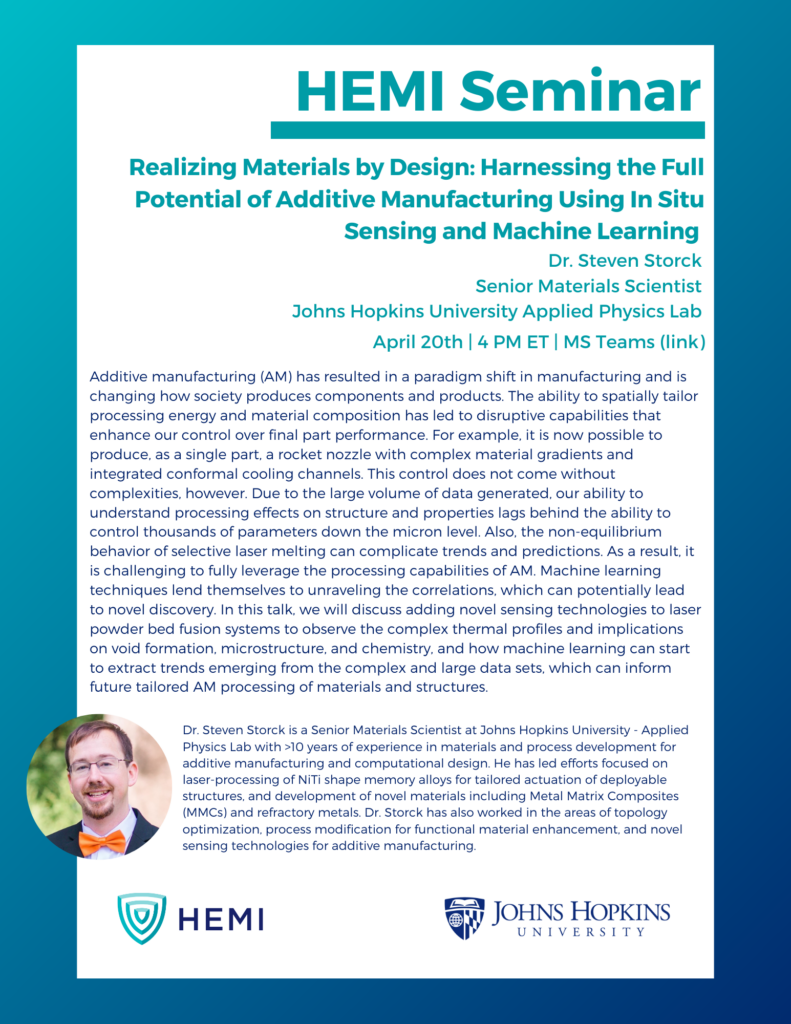April 20, 2021 @ 4:00 pm - 5:00 pm
Event Navigation
Realizing Materials by Design: Harnessing the Full Potential of Additive Manufacturing Using In Situ Sensing and Machine Learning
Additive manufacturing (AM) has resulted in a paradigm shift in manufacturing and is changing how society produces components and products. The ability to spatially tailor processing energy and material composition has led to disruptive capabilities that enhance our control over final part performance. For example, it is now possible to produce, as a single part, a rocket nozzle with complex material gradients and integrated conformal cooling channels. This control does not come without complexities, however. Due to the large volume of data generated, our ability to understand processing effects on structure and properties lags behind the ability to control thousands of parameters down the micron level. Also, the non-equilibrium behavior of selective laser melting can complicate trends and predictions. As a result, it is challenging to fully leverage the processing capabilities of AM. Machine learning techniques lend themselves to unraveling the correlations, which can potentially lead to novel discovery. In this talk, we will discuss adding novel sensing technologies to laser powder bed fusion systems to observe the complex thermal profiles and implications on void formation, microstructure, and chemistry, and how machine learning can start to extract trends emerging from the complex and large data sets, which can inform future tailored AM processing of materials and structures.
Dr. Storck is a Senior Materials Scientist at Johns Hopkins University – Applied Physics Lab with >10 years of experience in materials and process development for additive manufacturing and computational design. He has led efforts focused on laser-processing of NiTi shape memory alloys for tailored actuation of deployable structures, and development of novel materials including Metal Matrix Composites (MMCs) and refractory metals. Dr Storck has also worked in the areas of topology optimization, process modification for functional material enhancement, and novel sensing technologies for additive manufacturing.





